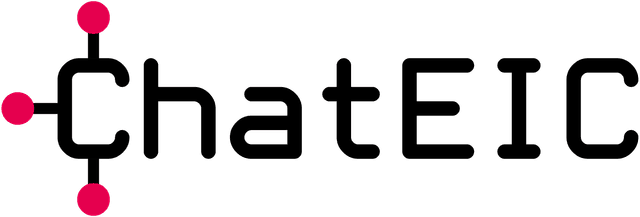
Work Packages for the EIC Accelerator (SME Instrument Phase 2)
Work packages are an integral part of EIC Accelerator applications (formerly SME Instrument Phase 2) and are the key to specifying and quantifying the exact use of the grant or blended financing requested (i.e. a combination of grant and equity). Professional writers and grant consultants are well aware of their importance and, as an integral part of the official EIC Accelerator proposal template, they have to be addressed with great care.
What is a Work Package?
A work package is a concrete set of tasks and development plans revolving around a specific deliverable. The EIC Accelerator recommends the use of five work packages in total which should encompass the full project scope and include all developments such as technical, financial and commercial tasks.
The individual work packages should be quantified according to their budget (i.e. separating grant and equity contributions), their timeline (i.e. giving the start and end of tasks and sub-tasks) as well as their respective project managers (i.e. task leaders, contributors, subcontractors).
Furthermore, work packages should be as credible and thought-out as possible since they will become the blueprint of the entire EIC Accelerator project if it is approved and successfully funded by the European Commission (EC). As such, work packages have to be clear, quantified, trackable and specific which allows the future project officers to assess the ongoing project, its adherence to the planned budget and also identify potentially emerging problems.
Why is a Work Package Necessary?
A large development project is separated into multiple work packages to make budgeting, tracking and accountability easier for the responsible party, namely the European Innovation Council (EIC). Without work packages, the EC would not know what the budget of the project is actually used for and the applicant would have an excessive amount of freedom over a large sum of government funds.
The work packages also help the proposal evaluators to assess the Implementation criteria and the overall credibility of the project (read: The Evaluation Summary Report). Since Technology Readiness Levels (TRL) are a key quantifier for the European Union (EU) in identifying the progress of an innovation from idea to market, the work package also helps in validating the overall development timeline and identify a project with short time-to-markets (read: How TRL's are Funded).
Does a Company Need to Create Work Packages?
Work packages should already be an integral part of any innovation startups internal operations in one way or another since Research and Development (R&D) projects generally require a high degree of planning and careful budgeting. In addition, business plans and investors often require information on the use of funds which is why such information is likely already existing internally.
There are cases where a startup or Small- and Medium-Sized Enterprise (SME) is looking for funding but does not have any quantified work packages yet which is a warning sign that the EIC Accelerator might not be a suitable financing avenue. If development plans are non-existent then this either means that the project is not innovative enough (i.e. no significant R&D) or that it is too early stage to be considered close-to-market.
A third option and also a very common case is a semi-complete work plan whereas a general vision has been developed internally but it lacks specific tasks, quantification and a clear timeline. This is often the case with startups who have an adaptable technology that can be applied in a variety of places and where the required funding source determines the path to take.
Such a preliminary plan can easily be edited and improved to match the EIC Accelerator scope and should not exclude an innovative company from submitting a proposal to the next deadline. If a previous application has been submitted but rejected with a low Implementation result, the work packages are a priority to review and edit before a re-submission is performed.
Specific and Quantified
While less relevant for the pitch interview, the proposal will need to specifically describe all of the expected tasks and cost factors (read: Pitch deck vs. Proposal). The rule is to quantify and specify as much as possible so that the progress can be tracked on a monthly and even weekly basis. Milestones, the budgeting and Key Performance Indicators (KPI) should correspond to the work package deliverables and the timeline should connect all respective items so that the evaluator is impressed by a comprehensive plan.
Prospect EIC Accelerator applicants should be aware of the types of work packages to include and not confuse feasibility assessment tasks (i.e. FTO, market analysis, etc.) with development tasks (i.e. value chain, technical tasks, certifications, etc.) since only the latter are eligible for the EIC Accelerator. The feasibility of the project (i.e. the former SME Instrument Phase 1) should have already been assessed and described inside the proposal which is why the Implementation should focus on the practical project execution.
Summary
- What is a Work Package? A concrete set of development tasks with specific, quantified and traceable outcomes.
- Why is a Work Package Necessary? It helps investors to keep the grant beneficiary accountable and track the budget.
- Does a Company Need to Create Work Packages? They should already be existent internally but often have to be refined.
- Specific and Quantified: Work packages should be quantified as much as possible and be consistent with other proposal sections.
These tips are not only useful for European startups, professional writers, consultants and Small and Medium-Sized Enterprises (SME) but are generally recommended when writing a business plan or investor documents.
Deadlines: Post-Horizon 2020, the EIC Accelerator accepts Step 1 submissions now while the deadlines for the full applications (Step 2) under Horizon Europe are listed below. The Step 1 applications must be submitted weeks in advance of Step 2. The next EIC Accelerator cut-off for Step 2 (full proposal) can be found here. After Brexit, UK companies can still apply to the EIC Accelerator under Horizon Europe albeit with non-dilutive grant applications only - thereby excluding equity-financing. Switzerland has resumed its participation in Horizon Europe and is now eligible for the EIC Accelerator.
EIC Accelerator Step 1 Deadline 2025
Contact: You can reach out to us via this contact form to work with a professional consultant.
AI Grant Writer: ChatEIC is a fully automated EIC Accelerator grant proposal writer: Get it here.
EIC Accelerator: EIC Accelerator delivers flexible funding options including blended finance (€2.5M grant + €0.5M-€10M equity), grant-only (up to €2.5M), or equity-only arrangements for scale-up and market deployment of breakthrough innovations. The initiative targets SMEs, start-ups, and small mid-caps with up to 499 employees. Technology areas include Biotech, Engineering, Artificial Intelligence, Energy, Quantum, Aerospace, Advanced Materials, and Semiconductors. Get Started
EIC Pathfinder: EIC Pathfinder delivers up to €3 million for Open calls and up to €4 million for Challenge-based calls to support early-stage research and development with proof-of-principle validation. The initiative requires research consortia with a minimum of 3 partners from 3 different countries, including universities, research organizations, and SMEs. Primary technology focus areas include Health/Medical, Quantum Technologies, AI, Environmental/Energy, and Advanced Materials. Get Started
EIC Transition: EIC Transition delivers up to €2.5 million in funding to overcome the 'valley of death' gap between laboratory research and market deployment, emphasizing technology maturation and validation. The initiative supports single legal entities or small consortia of 2-5 partners including SMEs, start-ups, spin-offs, and research organizations. Key technology domains include Health/Medical Technologies, Green/Environmental Innovation, Digital/Microelectronics, Quantum Technologies, and AI/Robotics. Get Started
EIC STEP Scale-Up: EIC STEP Scale-Up delivers significant equity investments of €10-30 million for established deep-tech companies prepared for hyper-growth and large-scale expansion. The initiative targets SMEs or small mid-caps with up to 499 employees who have obtained pre-commitment from qualified investors. Primary focus areas include Digital & Deep Tech (Semiconductors, AI, Quantum), Clean Technologies for Net-Zero objectives, and Biotechnologies. Get Started
EIC Pre-Accelerator: EIC Pre-Accelerator represents a pilot initiative delivering €300,000-€500,000 in funding for early-stage deep-tech development and preparation for the EIC Accelerator program. This program is exclusively accessible to single SMEs or small mid-caps from 'Widening countries' to foster regional innovation development. The initiative encompasses deep-tech innovations across physical, biological, and digital domains. Get Started
EIC Advanced Innovation Challenges: EIC Advanced Innovation Challenges represents a new pilot initiative delivering €300,000 (Stage 1) and up to €2.5 million (Stage 2) for breakthrough deep-tech innovations through ARPA-style staged funding mechanisms with integrated demand-side engagement. This initiative targets single entities or small consortia (2-3 partners) including SMEs, start-ups, and research organizations. Primary focus areas include Physical AI for autonomous robotics applications and New Approach Methodologies (NAMs) for animal-free biomedical testing, with TRL 4 entry requirements and demonstrated end-user commitment. Get Started
Eureka Network: The Eureka Network delivers various international collaborative R&D initiatives such as Network Projects, Clusters, Eurostars, Globalstars, and Innowwide, providing funding from €50K to €6.75M per project based on the specific initiative. This network emphasizes market-driven innovation and deep-tech advancement across multiple technology sectors including ICT/Digital, Industrial/Manufacturing, Bio/Medical Technologies, Energy/Environment, Quantum, AI, and Circular Economy. Eligible participants include SMEs, large enterprises, research organizations, universities, and startups, with Eurostars particularly focused on R&D-performing SMEs. Get Started
Eurostars: Eurostars represents a joint EU-Eureka initiative delivering €50K-€500K for international R&D collaboration specifically led by SMEs. The program adopts a bottom-up approach, accepting projects from all technology fields without predefined thematic restrictions. R&D-performing SMEs must lead the consortium and demonstrate significant R&D activities. Get Started
Innovation Partnership: Innovation Partnership enables collaborative innovation between public and private sectors with typical funding of €1-5 million per project. The initiative supports cross-sectoral strategic technologies through public-private partnerships and consortia. Projects concentrate on addressing societal challenges through collaborative innovation approaches. Get Started
Innovation Fund: The EU Innovation Fund delivers substantial funding of €7.5 million to €300 million for large-scale demonstration of innovative low-carbon technologies. The initiative targets clean energy, carbon capture, renewable energy, and energy storage technologies to accelerate the transition to a low-carbon economy. Eligible participants include large companies, consortia, and public entities capable of implementing large-scale demonstration projects. Get Started
Innovate UK: Innovate UK delivers various programs with funding ranging from £25K to £10M depending on the specific initiative, supporting business-led innovation, collaborative R&D, and knowledge transfer. The organization funds projects across all sectors with particular emphasis on emerging technologies and supports UK-based businesses, research organizations, and universities. Programs are designed to drive economic growth through innovation and technology commercialization. Get Started
Industrial Partnership: Industrial Partnership delivers €2-10 million in funding for industrial research and innovation partnerships focusing on manufacturing, industrial technologies, and digital transformation. The initiative supports industrial consortia and research organizations in developing collaborative solutions for industrial challenges. Projects aim to strengthen European industrial competitiveness through strategic partnerships. Get Started
LIFE Programme: The LIFE Programme delivers €1-10 million in funding for environmental protection, climate action, and nature conservation projects across the European Union. The initiative supports environmental technologies, climate adaptation strategies, and biodiversity conservation initiatives. Eligible participants include public authorities, private companies, NGOs, and research institutions working on environmental and climate challenges. Get Started
Neotec: Neotec represents a Spanish initiative delivering €250K-€1M in funding for technology-based business creation and development, supporting the growth of innovative Spanish SMEs and start-ups. The program covers all technology sectors and aims to strengthen Spain's technology ecosystem. Funding is specifically targeted at Spanish technology-based SMEs and start-ups to enhance their competitiveness and market presence. Get Started
Thematic Priorities: EU Thematic Priorities encompass various programs aligned with EU strategic priorities including green transition, digital transformation, health, and security initiatives. Funding amounts vary based on the specific program and call requirements, with projects designed to address key European challenges. Applicant eligibility varies by specific program and call, with different requirements for different thematic areas. Get Started
Any more questions? View the Frequently Asked Questions (FAQ) section.
Want to see all articles? They can be found here.
For Updates: Join this Newsletter!
